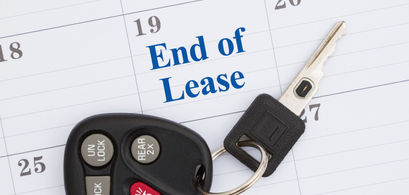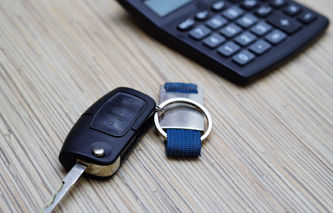One of the terms and conditions a car lease typically includes is an agreement to take possession of the vehicle for a predetermined period of time. But what if it's necessary to terminate the car lease early? What options are available, and what needs to be taken into consideration before making a decision?
Planning for a Car Lease
A considerable amount of planning occurs before entering into a car lease. A car has to be selected, a budget needs to be determined, and the length of the agreement needs to be factored into the deal. Renters might find themselves nearing the end of a lease, or perhaps considering an early termination of the agreement.
Getting out of a car lease early can be costly. At times, the financial penalties can almost be equal to the remaining payments. Choosing the right option can save a lot of money. Unfortunately, it's not as simple as dropping the car off at the dealership and walking away. The wrong approach can have repercussions and a long-term effect on the lessee's credit report.
Options for Ending a Lease Early
Anyone that's considering ending their lease early needs to proceed with caution; unless it's done correctly, it can be a very costly mistake in terms of money and future creditworthiness. Essentially, there are five options when it comes to ending a car lease before the expiration date:
Return the vehicle to the dealership
Lease another car
Have the car repossessed
Buy out the lease, or do a lease transfer / lease swap
Each of the above options is discussed in more detail in the paragraphs below.
Return the Car
The easiest way to end a lease early is to return the car to the dealership before the contract expires. Keep in mind the lessee is obligated to make the remaining monthly payments, pay the costs of any penalties for excess wear and tear, as well as the expense associated with excess mileage charges.
In short, it's possible to return the car, but the financial obligations do not stop. The contract is still enforceable until the term expires; even if the car is sitting in the dealer's parking lot.
Lease a Different Vehicle
It's also possible to end a lease early by entering into an agreement to lease a different car from the dealership. Before selecting this option, it's important to understand how much equity there is in the car. What is owed on the vehicle is based on calculations involving the car's residual value, depreciation, and capitalized cost.
If in a negative equity position (someone owes more than the car is worth), the money owed is often rolled into the new lease. This has the opposite effect of a down payment. If that occurs, the new monthly lease payment may be extremely high because it's necessary to pay off principal owed from the old car's lease plus the cost of the new car.
Repossession
Another option is to stop making the monthly payments and have the dealership repossess the car. Whenever someone doesn't meet their financial obligations to a dealership, there is a very good chance a finance company will attempt to recover those payments. Here is the trade off:
In the short-term, it might be possible to get away with defaulting on the remaining lease payments, and / or not paying the dealership any money still owed. Over the long haul, a credit score and / or rating may be damaged, and that might affect future borrowing of any kind. In fact, this could make leasing a car nearly impossible, or much more expensive than it was in the past.
Lease Buyout
Another option is to buy out the lease from the dealership or financing company. This option can sometimes work in the lessee's favor if the value of the car has unexpectedly held up better than projected by the dealership. For example, the buy out price might be $15,000, but the car's true market value is closer to $17,000.
In reality, the above example doesn't happen very often. That's because dealerships are very good at estimating car values well into the future. In fact, more often than not, buying out the lease is a costly decision because cars experience their greatest depreciation over the first two years of ownership. This means the actual market price might be lower than the buyout price; especially when terminating within the first two years of the agreement.
Car Lease Swaps
Sometimes dealerships allow the lease to be transferred to another party, who is then responsible for making the remaining payments on the car. This is sometimes referred to as a lease swap. The person assuming the lease gains the benefit of the capitalized cost reduction payment, which was made to lower monthly costs. On the flip side, the original lessee has the chance to walk away from the car without worrying about a negative impact to their credit rating.






.jpg)
.jpg)